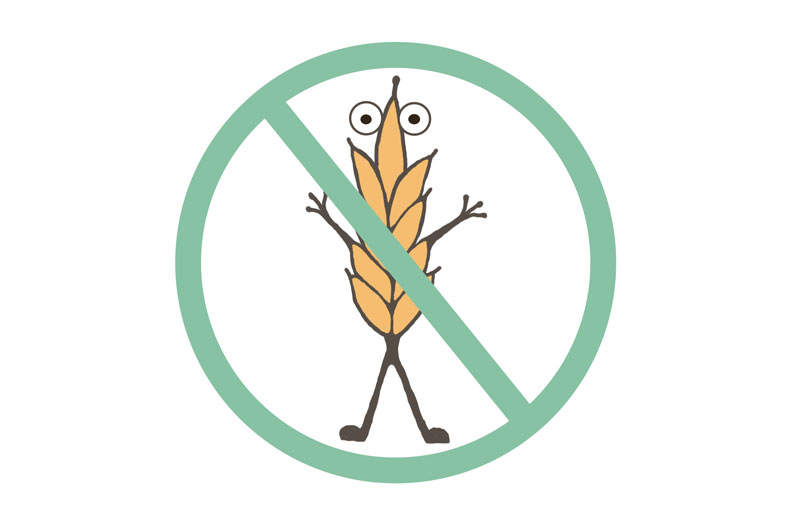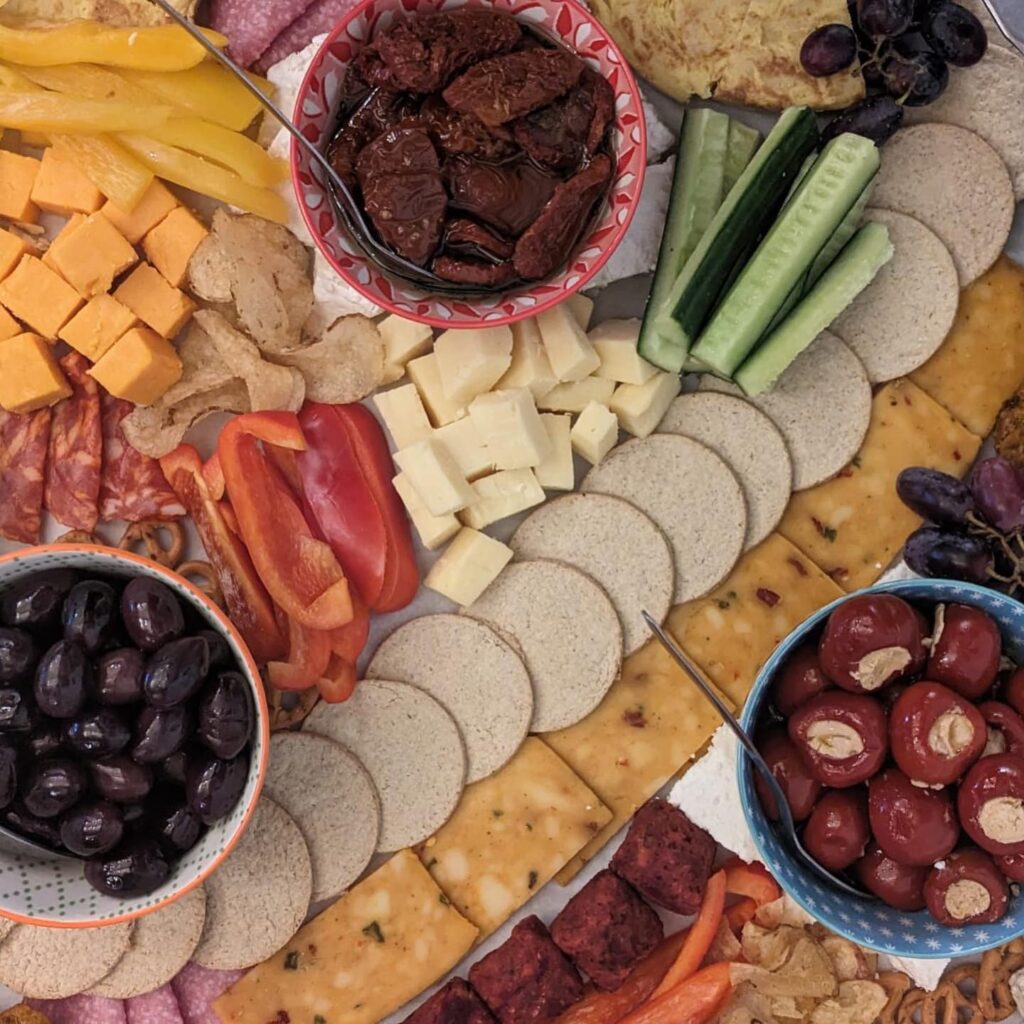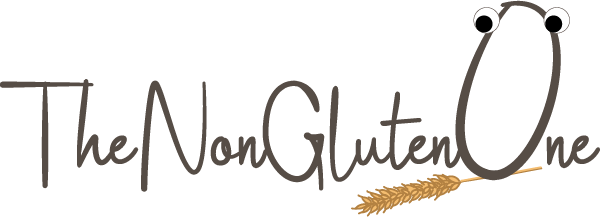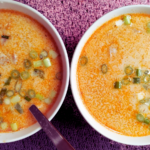Coeliac disease and me

I believe we have been living together in the same body for decades but I have had my diagnosis since 2019. At first, it seems very difficult to entirely cut out a major staple in everyday life which gluten is, especially living with a Spaniard. Everyone has a very different story before becoming fully gluten-free and often it is a long and difficult journey but it shouldn’t be like that. I think there needs to be more awareness about some of the more uncommon symptoms to get a proper diagnosis as soon as possible. And how important it is for us, who have been diagnosed with coeliac disease, to follow a wholly gluten-free diet.
It is not a choice; it is a health concern that should not be taken lightly by anyone as even small amounts of gluten can cause a lot of damage. So here I am, doing my bit in raising awareness through sharing my gluten-free story and recipes.
Initial indicators – the adventure begins
For years I didn’t think the health issues I was having, stopped me from living the life I wanted to live. My concerns in 2019 were constipation, occasional diarrhoea, and unexplained stomach aches, among others after some heavy dieting as I was unhappy in my body. I was sent for a blood test which came back with a high possibility for coeliac disease and then I was added to the waiting list for a gastroscopy.
When I did my initial research, I first saw this on Wikipedia, “coeliac disease or celiac disease is a long-term immune disorder that primarily affects the small intestine. Classic symptoms include gastrointestinal problems such as chronic diarrhoea, abdominal distention, malabsorption, loss of appetite and among children failure to grow normally”. It didn’t make much sense to me at first as I am overall very healthy, eating a balanced diet, and I certainly hadn’t lost my good appetite for food.
Coeliac UK gives a much better explanation: “Coeliac disease (pronounced see-liac and spelled celiac in other countries) is a serious illness where the body’s immune system attacks its own tissues when you eat gluten. This causes damage to the lining of the gut and means the body can’t properly absorb nutrients from food. Coeliac disease is not an allergy or food intolerance.”
Family history?
Pre-diagnosis, my father had died of colon cancer (also known as colorectal cancer, bowel cancer, or rectal cancer – the development of cancer from the colon or rectum).
According to NHS, “less common and more serious complications of untreated coeliac disease include some types of cancers, such as bowel cancer”. My father was never tested for coeliac disease and “coeliac disease often runs in families. If you have a close relative with the condition, such as a parent or sibling, your chance of also getting it is increased”, it states.
Growing up with symptoms
As my gluten-free story unfolded, I started thinking about the time when I was growing up. Back then, I had several small but significant health issues involving unexplained stomach aches, anaemia and issues with bones. Thinking about it now, they could all have been linked to the disease.
Untreated coeliac disease and mental health
I have always been used to living with mood swings as I thought they were a part of my personality or menstrual cycle. I am not trying to put the blame on the disease about all the problems in my life but there is some truth behind it. According to an article published in Psychology Today, “researchers have long observed an overlap between coeliac disease and depression. Reports of depression among coeliac disease patients have appeared as early as the 1980s”. More specifically, “A 1998 study confirmed that about one-third of those with coeliac disease also suffer from depression.
Adolescents with coeliac disease also face higher than normal rates of depression and a 31% risk of depression, while only 7% of healthy adolescents face this risk”. As a conclusion, the article states that “undiagnosed coeliac disease can exacerbate symptoms of depression or may even be the underlying cause”.
Getting a diagnosis
Thinking a gastroscopy appointment would take several months to get and as I was in agony most of the time, I wanted to try how it feels like to cut out gluten for a few days. But do not do it yourself because you need to continue eating gluten before the procedure to get a correct test result. I immediately felt less tired and my stomach aches eased, so I was almost certain that the diagnosis is going to be positive for coeliac disease. The letter for a confirmed appointment arrived sooner than I expected.
The procedure was as horrible as expected. I started a gluten-free diet the next day after the procedure because the doctor told me that the results would take a few weeks, but also, they warned me that it could take a few months. Overall, it took eight months from the gastroscopy until getting a final diagnosis due to series of clerical errors.
Update from 2023
Four years into my gluten-free diet, I feel like I need to give an update. A lot has happened since 2019. First, the pandemic with empty shop shelves, during which I started this blog. Then I found a new job, which has given me less time to concentrate on this blog (sad face), then I lost my grandmother at the age of 97 and six months later, my dearest mother at the age of 72. I was in a dark place for a while after that and I guess that took a toll on my health too. For the last year, I have been seeing the GP and different specialists more often than my friends. Without going into too much detail, I was diagnosed with Gastroesophageal reflux disease (GERD), which basically means that I experience constant stomach pains caused by heartburn and acid reflux. There’s now potentially even less food options to choose from. But at first, I need to find out which ones. How exciting! So stay tuned on my journey to a diet that doesn’t hurt my body.
A gluten-free wedding, yes!
At the second half of 2023, I got married to my Spaniard. We had a lovely small wedding lunch at bigmoose coffee co, a charity café supporting people through therapy and early intervention. And it was fully gluten-free! So, I fully recommend them for anyone living in Cardiff and planning a small size gluten-free wedding or catering for any other event.

What has improved?
In conclusion, after starting a gluten-free diet, my whole life has changed, for the better. I can walk and run up hills without losing breath, my energy levels and mood does not swing anymore. I am generally feeling a lot better. And I have learned so much about different flours, especially how tricky it is to get baking with gluten-free flours right.
As mentioned in the beginning, before all this, I was unknowingly stopping myself from living my life the way I always wanted. And I guess I have been very lucky to find a partner (now husband) who I met before going through this life-changing process. He believed in me and supported me, and now we have come out of this stronger together. So here is a big thank you to him too. My gluten-free story is not over yet.
Keep it healthy and explore my gluten-free recipes and travel guides section too.





